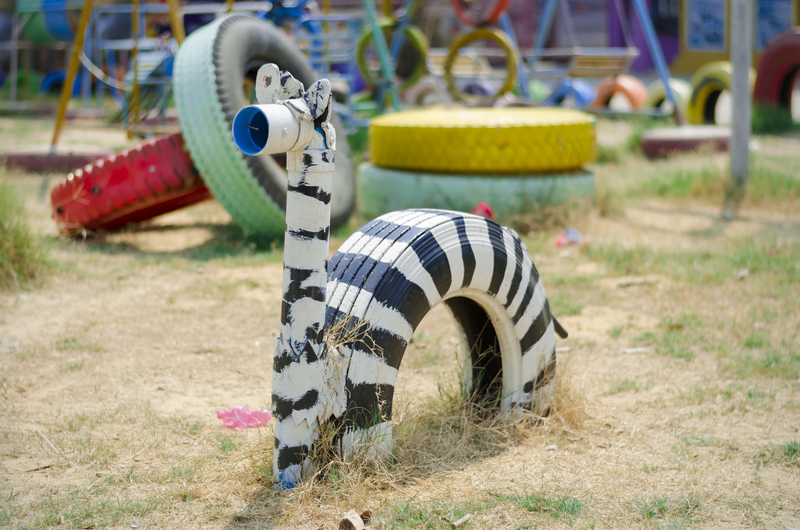How to Minimize Costs When Dealing With Bulky Waste Items
Bulky waste items can present a significant challenge not only to homeowners and businesses, but also to local authorities and waste management firms. Whether you are clearing out old furniture, handling renovation debris, or managing waste from a commercial site, the costs can quickly add up. Understanding how to minimize costs when dealing with bulky waste items is critical to optimizing your budget and maintaining environmental responsibility. This comprehensive guide will provide you with actionable strategies, tips, and insights to help reduce bulky waste disposal expenses while staying compliant with local regulations.
What Are Bulky Waste Items?
Bulky waste items are objects that are too large to be accommodated in standard domestic waste bins. Examples include:
- Old sofas and armchairs
- Matrasses
- Bicycles and treadmills
- Garden furniture and sheds
- Renovation debris (wood, plasterboard)
- Large toys, bikes, and prams
Because of their size and weight, bulky waste disposal typically involves extra handling, transportation, and sometimes special processing. These factors can contribute to the high cost of removal, but by learning the best ways to handle these items, you can significantly reduce your outlay.

Why Do Bulky Waste Items Cost More to Dispose Of?
Disposing of large waste items is generally more expensive than regular waste collection for several reasons:
- Specialized Equipment: Large items often require special vehicles or lifting mechanisms for collection and transport.
- Labour Intensive: Extra manpower is needed for lifting and moving heavy or oversized items safely.
- Disposal Fees: Many municipal and private facilities charge higher rates for accepting and processing bulky objects.
- Environmental Regulations: Specific rules apply for items containing hazardous materials (like fridges), adding complexity and cost.
The good news? There are plenty of cost-saving options available when it comes to dealing with bulky waste. Let's explore these solutions in depth.
Top Strategies to Minimize Bulky Waste Disposal Costs
1. Inventory and Sort Before Disposal
Begin by taking a detailed inventory of the items you need to dispose of. Sorting your bulky waste into categories such as "resell," "donate," "recycle," and "dispose," will reveal cost-saving opportunities that may not be immediately obvious.
- Condition Assessment: Check if any items can be sold or given away in their current state.
- Separate Materials: Metal, wood, and plastics are often easier and cheaper to recycle if sorted beforehand.
2. Sell or Donate Usable Items
Before considering collection or landfill, try to sell or donate usable bulky items. This approach not only reduces disposal costs but may also generate some cash or goodwill.
- Online Marketplaces: List old furniture or appliances on platforms like Facebook Marketplace, Gumtree, or Craigslist.
- Charities and Nonprofits: Organizations such as local shelters, schools, or The Salvation Army may accept bulky donations and often arrange free pickup.
Donating is also environmentally responsible, keeping items out of the landfill and helping your community.
3. Use Council Bulky Waste Collection Services
Local authorities typically offer bulky item pick-up services at rates far lower than private providers. Some councils provide a limited number of free or subsidized collections per year, while others offer discounted group rates for multiple items.
- Group Your Waste: Save by scheduling one large collection instead of several small ones.
- Know The Rules: Check item limits and prohibited materials to avoid additional charges.
4. Share Costs With Neighbors
If you and your neighbors are disposing of large waste items around the same time, consider joining forces.
- Hire a Skip Together: Renting a skip for bulky waste can cost less per household if you split the expense.
- Bulk Wheelie Bin Collection: Some localities allow for 'block' pickups for apartment or housing complexes.
5. Break Items Down Yourself
Disassembling bulky items makes them easier and cheaper to transport and dispose of. Many waste companies charge less for dismantled items as they consume less space and are safer to handle.
- Take apart furniture into smaller parts
- Remove doors or drawers from cabinets
- Cut up mattresses or large carpets (check local guidelines)
6. Recycle Where Possible
Many components of bulky waste items are recyclable. Instead of sending them straight to landfill:
- Take metals (e.g. bed frames, stoves) to scrap dealers
- Bring electronic goods to e-waste drop-off points
- Contact recycling centers to see what large items they accept
Some recycling centers take items for free or even pay for certain materials like metals, directly reducing your bulky waste disposal costs.
7. Hire a Reputable Junk Removal Company (At the Best Price)
If you decide to engage a professional service, comparison shopping is crucial. Compare multiple junk removal companies for rates, reputation, and included services.
- Ask for itemized quotes, so you know where your money is going
- Look for 'pay-per-item or weight' offerings instead of flat rates, especially if you don't have a full truckload
- Check that the company is licensed and insured to avoid liability issues
How to Prepare Bulky Items for Cost-Effective Disposal
Preparation is key to saving money:
- Clean Items: Clean and dry items are favored by charities or resale shops and won't attract pest-control surcharges.
- Strip Dangerous Parts: Remove batteries or fluids from appliances, which may incur hazardous waste fees if left inside.
- Keep Access Clear: For curbside pickup, place items where they are easily accessible - this may avoid additional labor charges.
Understanding Bulky Waste Disposal Regulations
Every region or city has its own regulations for the collection, transport, and disposal of large waste items. To avoid fines and unexpected fees:
- Review Local Authority Guidelines: They may specify acceptable items, size/weight limits, and special handling rules.
- Comply With Environmental Requirements: Items like fridges, TVs, and computers often have separate collection protocols due to hazardous components.
- Illegal dumping carries severe penalties; always use authorized collectors to stay within the law.
Bulky Waste Management for Businesses
Commercial operations and landlords may face even higher waste removal costs when disposing of office furniture, old stock, or construction debris. Cost minimization in these cases requires a strategic approach:
- Negotiate Bulk Collection Contracts: Regular scheduled pickups from a single provider may yield volume discounts.
- Implement Reuse Policies: Donate, resell, or internally repurpose assets before considering disposal.
- Employee Engagement: Encourage staff to flag unwanted items for internal swapping or sale first.
For construction and renovation waste, ask your contractor about "recycle first" companies and whether any demolition materials can be salvaged or resold.
Eco-Friendly Ways to Minimize Bulky Waste Disposal Costs
Environmentally conscious disposal options are not only
1. Upcycling and Repurposing
Get creative: Old doors become tables, palettes turn into planters, and furniture parts can be adapted for home improvement projects. This extends the useful life of bulky items and avoids the need for removal or transport costs altogether.
2. Host a Community Swap Event
Organize a swap meet in your neighborhood or building. Residents exchange big items for free, ensuring unwanted goods find new homes quickly and without cost.
3. Online Giving Platforms
Websites such as Freecycle or local Facebook "Buy Nothing" groups are ideal for giving away items at no expense.
Hidden Costs To Avoid When Disposing of Bulky Waste
When minimizing costs for
- Permit Fees: Some regions require permits for skips, curbside pickups, or use of communal collection points.
- Surcharges for Hazardous Materials: Extra fees apply for items containing fuels, chemicals, or asbestos.
- Unsorted Load Penalties: Mixed or contaminated loads can double disposal costs at the recycling center.
- Last-Minute Bookings: Same-day or emergency services often carry premium rates.

Frequently Asked Questions (FAQs) on Minimizing Bulky Waste Disposal Costs
Q1: What's the cheapest way to get rid of old furniture?
The most affordable options are to sell, donate, or give away items. If not possible, use council collection services or a shared skip with neighbors to split the costs.
Q2: Are there rules about leaving items on the curb for "freecycling"?
Yes, many municipalities prohibit leaving unwanted items on sidewalks unless scheduled for official collection. Always check local guidelines before curbside disposal.
Q3: Can I take bulky waste to the dump myself?
Most civic amenity sites accept large waste loads from residents, and it's often free, especially for recyclable materials. Be prepared to provide proof of residency and sort loads as required.
Q4: How can businesses minimize bulky item disposal expenses?
By negotiating ongoing bulk contracts, setting up internal reuse or donation programs, and working with eco-friendly removal firms, businesses can keep costs low and reduce landfill.
Conclusion: Smart Strategies for Minimizing Bulky Waste Disposal Costs
Dealing with bulky waste items doesn't have to break the bank. By planning ahead, preparing items properly, and taking advantage of local resources, you can minimize your bulky waste disposal costs significantly. Combining resale, donation, recycling, and careful selection of collection services offers the best results for your budget and the environment.
Don't forget to communicate with your local authorities, neighbors, and removal firms to uncover the latest cost-saving programs. With these actionable tips, you'll be well-equipped to handle bulky waste in a smart, affordable, and environmentally conscious way.
- Inventory and separate items before disposal
- Donate, sell, or give away usable bulky goods
- Break down large items where possible
- Leverage local council and community collection options
- Recycle and upcycle to reduce waste going to landfill
- Avoid hidden fees by following local rules and preparing items correctly
Take these proactive steps today, and you'll save money, time, and help the environment when it comes to bulky waste removal.